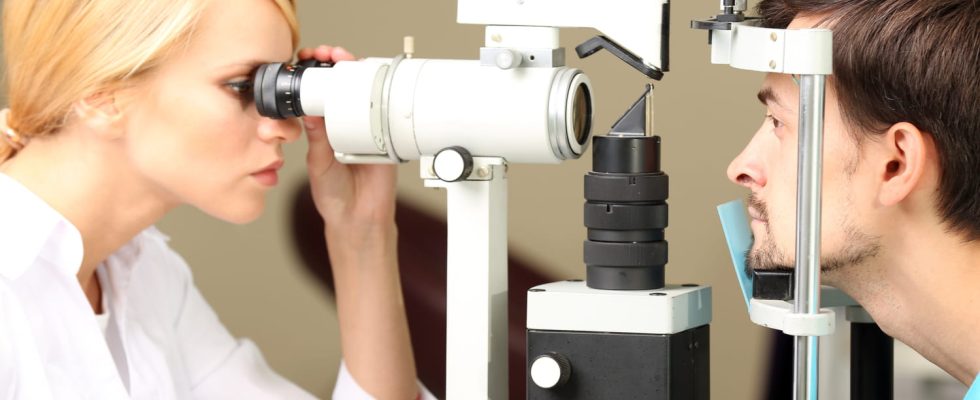The orthoptist is the paramedical specialist in rehabilitation, rehabilitation and functional exploration of vision: he detects and treats visual disorders.
What is an orthoptist?
The missions of orthoptics are screening, rehabilitation, rehabilitation and visual exploration. The orthoptist can be consulted to correct convergence disorders, without age limit. Aude Yvelin defines her activity as follows: “The orthoptist is a health professional specializing in the management of visual disorders such as binocular vision disorders, strabismus, oculomotor paralysis. It works on prescription from the ophthalmologist“. As a paramedical professional, the orthoptist also performs structural and functional vision screenings and examinations interpreted by the ophthalmologist (visual fields, imaging). This specialist may be required to work in collaboration with opticians, occupational therapists and psychomotor therapists, in addition to his close collaboration with the ophthalmologist. The orthoptist takes care of patients of all ages, from infancy to the elderly.
Where to consult an orthoptist?
Most orthoptists practice as a liberal in private practice. It is also possible to work as an employee in a hospital centre, an ophthalmologist, a rehabilitation center or an establishment for the disabled.
Who needs to see an orthoptist?
The orthoptist intervenes to relieve the patient of the following symptoms:
- itchy or watery eyes,
- Red eyes,
- fatigue related to the frequent use of screens,
- headaches,
- dizziness,
- postural pain,
- nausea,
- strabismus,
- double vision (diplopia).
- Amblyopia (“lazy eye”) problems in young children
- AMD
- Severe glaucoma
The patient will be referred to an orthoptist by his ophthalmologist or another medical specialist if the latter thinks that an orthoptic assessment and rehabilitation are necessary.
At what age should you consult an orthoptist?
Aude Yvelin recommends early treatment: “An ophthalmologist may be consulted from nine months of infant. Regular follow-up of the child from the age of 2 and a half makes it possible to avoid missing out on a visual disorder“. The specialist also recommends observing your child, his visual behavior and the performance of his daily tasks in order to detect any disorder that may have gone unnoticed. If in doubt, do not hesitate to make an appointment with his ophthalmologist.
The consultation usually begins with an interview, a visual acuity test and an orthoptic assessment. Various tests make it possible to study the movement of the eyes and the visual perception of the patient in order to judge the need for rehabilitation. “If rehabilitation sessions are planned, it will allow the patient to obtain better visual comfort thanks to oculomotor and sensory work.“says the specialist.
A medical prescription for an orthoptic assessment is required, generally established by the general practitioner or the ophthalmologist. Other specialists can redirect the patient to an orthoptic session such as the pediatrician, neurologist or ENT.
How much does a session with an orthoptist cost?
The consultation with the orthoptist is reimbursed by Health Insurance up to 60% in the coordinated care pathway. The prices depend on the services. The agreed rate for an orthoptic check-up is 78 euros in sector 1a classic rehabilitation consultation can vary from 20 to 40 euros.
What studies to become an orthoptist?
THE orthoptist certificate of competence, necessary to exercise, is obtained after three years of university studies and hospital internships. Admission to training is at baccalaureate level, and is subject to an entrance examination. The baccalaureate with scientific options is recommended but not compulsory. The subjects covered during the three years of study are as follows: optics, refraction, anatomy of the eye, additional examinations, statistics, eye pathologies, orthoptic examination, installation of the orthoptist, treatments, low vision, ethics , psychology. In addition to these theoretical lessons, there is the completion of a compulsory internship every year, within a hospital ophthalmology department. Written and oral tests mark the end of each year of study. In the last year, in addition to the final exam, a dissertation defended before a jury must be presented.
Thanks to Aude Yvelin, orthoptist
